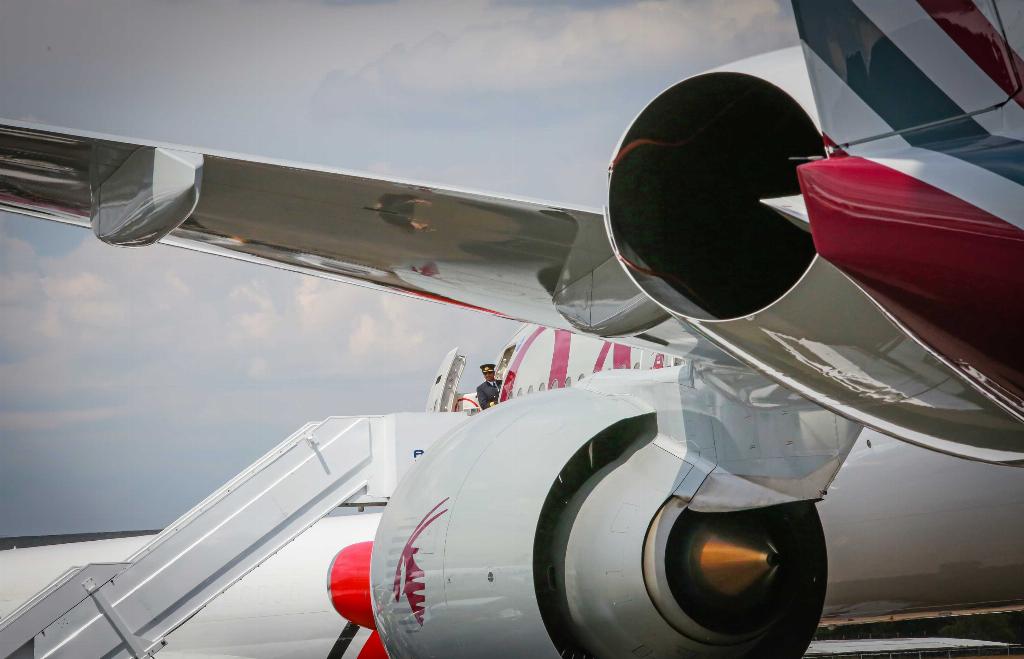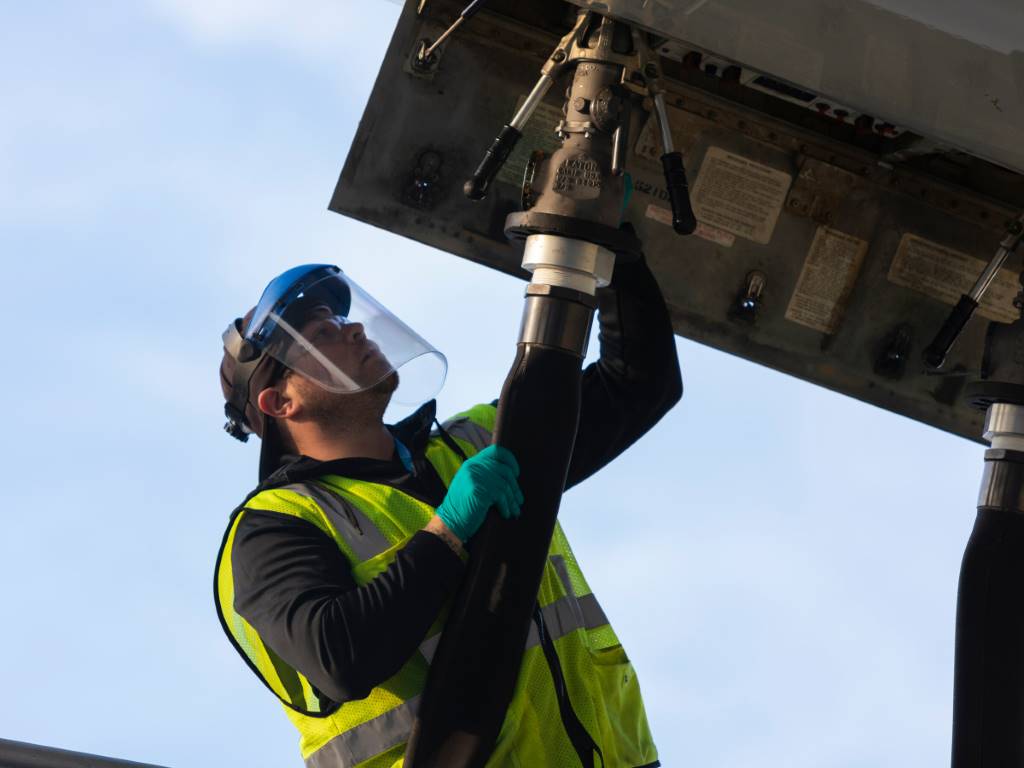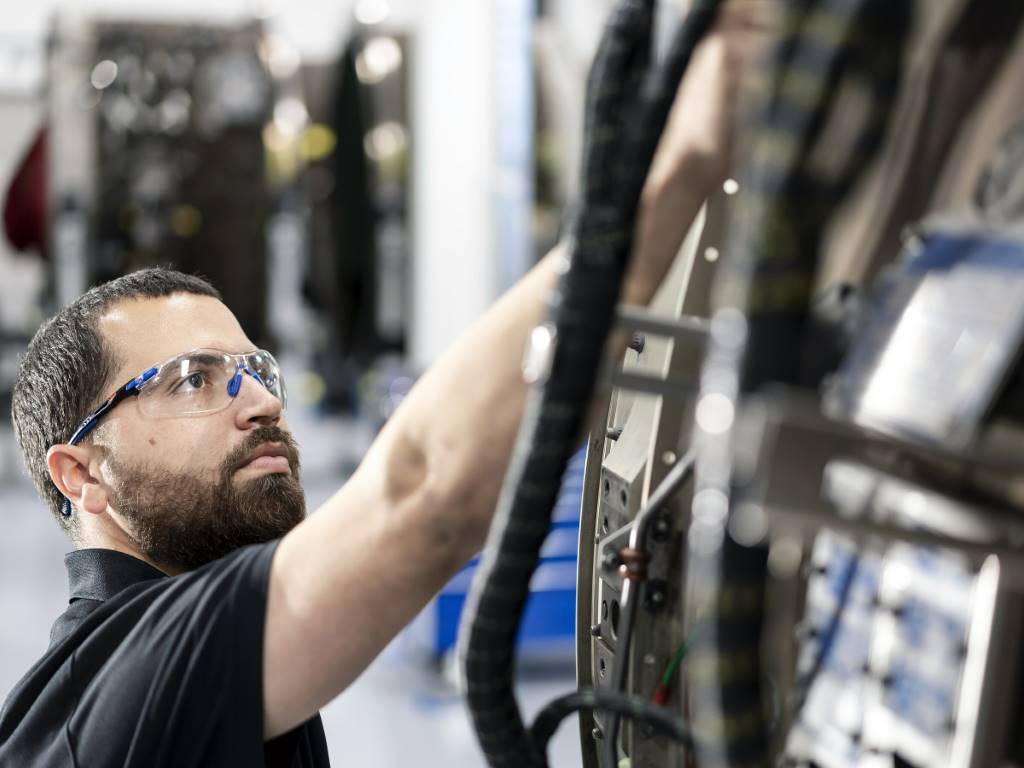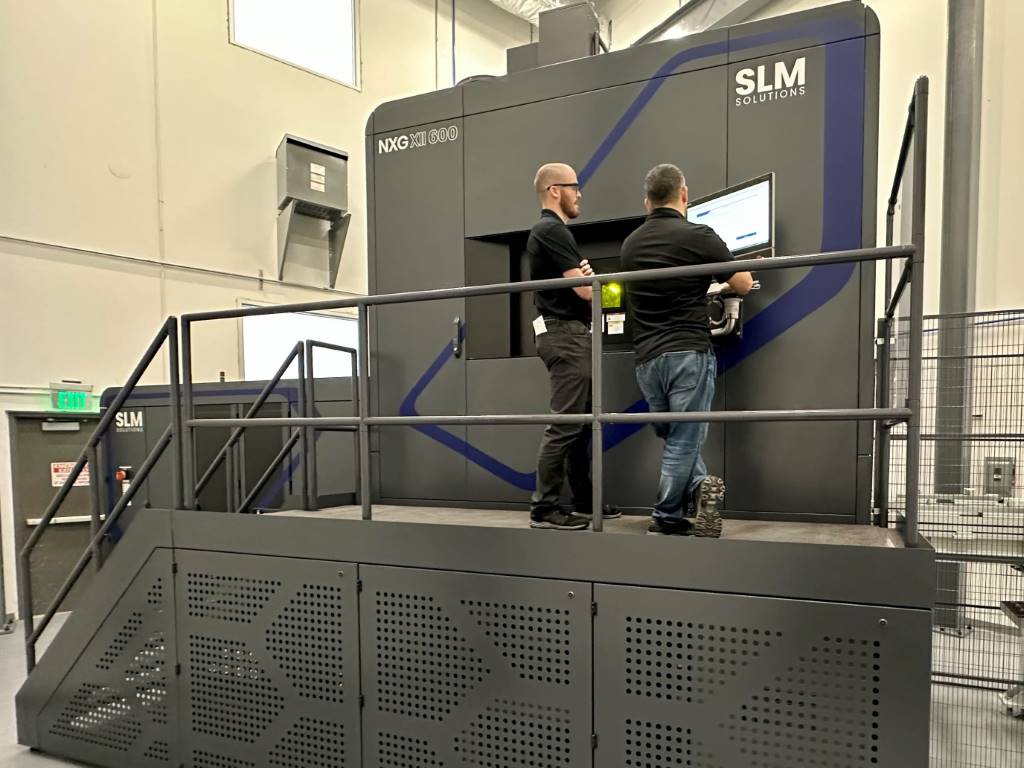Onwards and upwards together

Farnborough Aerospace Consortium represents many prime suppliers, small engineering firms and other innovative companies. Here, company CEO, David Barnes looks at how the Cluster is helping the industry get through the crisis.
The aerospace industry provides more than 120,000 skilled jobs and has an annual turnover of £35 billion – most of which is generated by exports. Farnborough Aerospace Consortium (FAC) is centred in the South and South-East where most of the sector is situated, although it has members across the country and internationally. It is the longest established regional aerospace and defence trade body in the UK and support hundreds of businesses in the sector and its supply chain.
Q) Is there a particular area of the aviation industry that has been hit by the pandemic?
It starts with the airlines and then flows down throughout civil aerospace. Passenger occupancy figures are crucial; high numbers drive demand and that filters down through the supply chain. Low numbers have the reverse effect and hits all areas that support civil aviation – from the first-tier suppliers right down to component producers. The defence part of aerospace has been hit, but not nearly as hard.
Q) What assistance, if any have you received from Government/ADS Group in order to help your members through these troubled times?
As the FAC we have received no assistance at all. Our members are of course utilising the furlough scheme and the other grants and loans that are available to them. We have been offering advice and assistance where we can and have been pursuing all opportunities available.
Q) What are you doing to help these members get through the pandemic crisis?
We have been very active with updates on a news-sheet about the developing situation being sent out every other day. And we have been extremely active in lobbying government departments wherever we can and have also been pushing our messages out via the media.
Q) What kind of feedback have you received from members most affected by the pandemic?
All our members are extremely concerned about the worsening situation and how long it will go on for. They worry that even if flights return, social distancing will result in far fewer passengers, which will continue to impact on demand for their products and services. Any quarantining will exacerbate that and will deter people, especially business travellers. Cashflow is of particular concern especially for the small businesses. It is urgent for them and we have been lobbying the government to provide clarity and assistance on this matter.
Q) Do you think companies should be using this downtime to effectively ‘reset’ and look at how they are running their businesses?
Yes. And I’d be surprised if any are not. It is an opportunity to look at their business and see if there are any opportunities to be had, efficiencies to be made or new areas they can exploit. Our members by their nature are flexible and resourceful and are always looking at how they can improve.
Q) Do you have any ‘good news’ stories that either the FAC or its members have performed, i.e. pivoting to manufacture equipment for the NHS?
Yes. As in the last war when the aerospace sector swung into action, so it has during this crisis. Some businesses of course have continued producing necessary, important components and others have turned their efforts to helping design and produce PPE and other equipment such as ventilators and respirators.

Testime Technology, based in Basingstoke has delivered hundreds of face masks to Basingstoke and North Hampshire Hospital to protect frontline NHS key workers. Perfect Bore in Andover leapt into action to produce vital components for ventilators and coronavirus testing kits. FliteTrak and Barnbrook Systems, both based in Hampshire, joined an effort to design and manufacture face shields. Executive Freight Services focused on importing medical supplies to help the NHS. These are just a few examples of how our members have done their bit. Now they are looking for help themselves and want the government to provide extra assistance.
Q) Are there any positives in general to come out of all this?
That the sector threw its weight behind the national effort is one positive. The situation has also forced businesses to look for more efficient methods of staffing and production. We might see more collaboration in the future and technologies such as 3D printing are likely to be more widely used.
Q) What kind of aviation landscape will we faced with when everything gets back to normal – if indeed we ever do get back to ‘normal’?
We have got to look for more efficiencies. If social distancing means fewer passengers, the industry will have to address how it changes to meet that change. Airlines will have to look at air-conditioning on aeroplanes, for example, and see if this can be changed to reduce the risk of the virus spreading. Air freight will remain a practical prospect but is likely to suffer from problems with manpower in the current Covid-19 situation. Ultimately, the industry must now look at ways of dealing with limited number of passengers allowed onto flights, and find some imaginative ways to overcome the difficulties.
Q) Has the FAC been using the latest video communication methods between yourself and members to maintain contact?
Yes. We have been using all of these technologies to keep in touch with each other and with our membership. Oddly, although members have been unable to meet, the levels of collaboration have increased out of necessity and because of the crisis we are facing.
Q) What are your thoughts on the Farnborough Airshow invoking force majeure and refusing to reimbursing exhibitors?
I am concerned by this and I’m sure we haven’t heard the last of it. Our members paid through us and now obviously want their money back. Discussions are ongoing and we are working hard to find suitable arrangements for our members.













